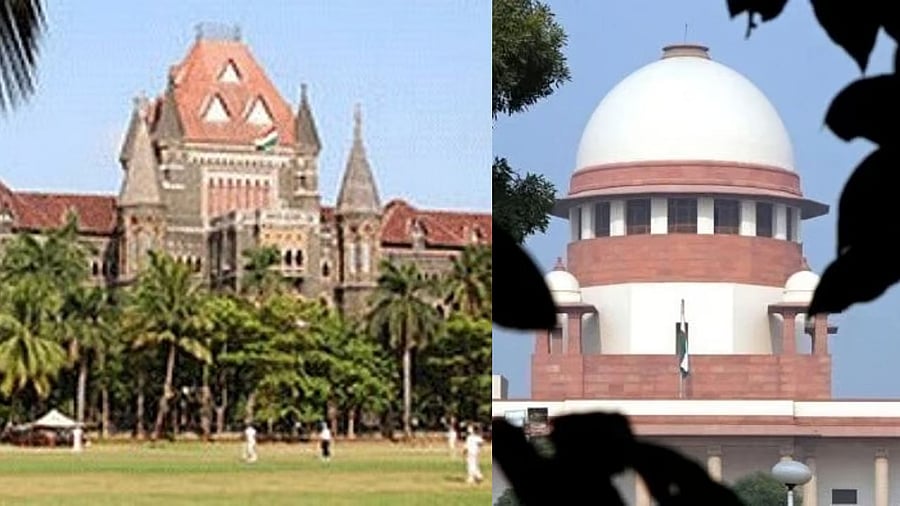
Bombay High Court (L)and Supreme Court of India (R)
Credit: PTI file photos
Mumbai: The investigations into the July 11, 2006 chain bombing has been mired in controversies from the very beginning.
These controversies include conflicting versions, including the pressure-cooker theory and some common accused in two other cases, the Aurangabad arms haul case and the Malegaon blasts.
Besides, the accused had also challenged the applicability of Maharashtra Control of Organised Crime Act (MCOCA) - delaying the trial. The Bombay High Court and then the Supreme Court upheld it and cleared the decks for trial.
When the Anti-Terrorism Squad (ATS) detected the case - it was told to the media that the bombs were kept inside pressure cookers to increase the impact, however, no such thing was mentioned in the chargesheet nevertheless, brought during the trial.
Some of those who have been arrested in the 7/11 train bombing case – have also links with the Malegaon-I chain blasts of September 8, 2006 and the earlier Aurangabad arms and RDX haul case. Incidentally, Zaibuddin Ansari alias Abu Jundal, who is being tried for the 26/11 terror attack - an Indian link in the Lashkar-e-Taiba fidayeen attack, is a wanted accused in the Aurangabad arms haul case and also the February 13, 2010 blast at Pune’s German Bakery.
While 7/11, Aurangabad and German Bakery cases are being handled by ATS, the Malegaon-I case has been handed over to the CBI. As far as the Malegaon-II blast of September 29, 2008 is concerned it was handled by the ATS and later the National Investigation Agency (NIA) joined the probe.
Moreover, in September 2008 when the Crime Branch busted the Indian Mujahideen network – including the Pune module – it came to light that some of the IM operatives masqueraded as “Pakistanis” and were part of the group that carried out the orchestrated bombing in local trains.
Case records reveal that there is a clear triangle as far as the Aurangabad arms haul case, 7/11 blasts and Malegaon case. Moreover, after the Mumbai Crime Branch-CID busted the Indian Mujahideen (IM) network with the arrest of 21 people in October 2008, it claimed that IM was virtually responsible for major acts of terror since 2002 including the firing outside the American Consulate in Kolkata on July 22, 2002. On the other hand, some of the IM members masqueraded as Pakistanis and mixed up with the Indian arrested accused in the 7/11 case and helped in triggering the train blasts and later vapourised.
Now, the Bombay High Court, while ordering acquittal, has noted that “torture inflicted” on the accused to extort confessional statements.